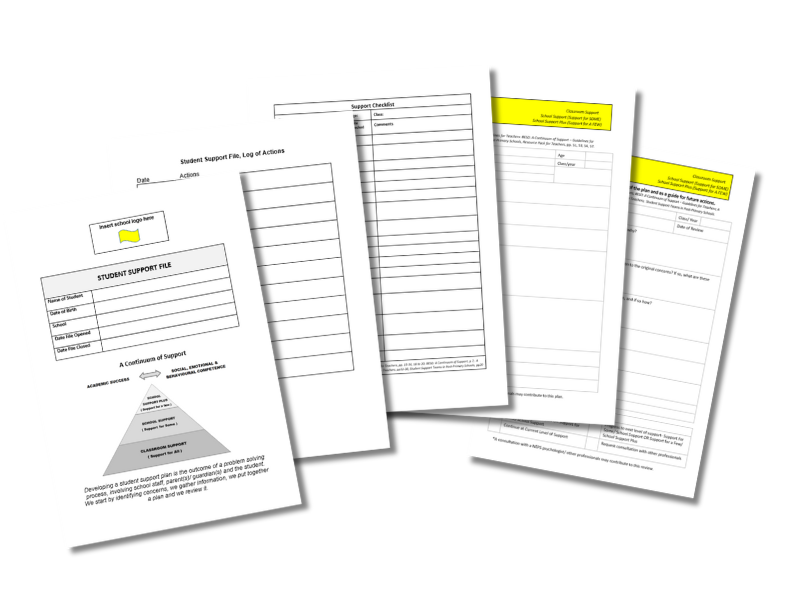I have seen the value in the shift from withdrawal to a more in-class/station teacher/team teaching form of support.… It stops a child looking different!
SENCO
After gathering all necessary information from previous teachers, arranging support time, reading relevant reports, and assessing last year’s targets, it’s time to prepare the new support plan for the coming year. This crucial step involves a structured approach to ensure each student’s needs are met effectively.

The Plan Layout
According to Circular 13/17, all support plans should follow a specific template to maintain consistency and thoroughness. The main sections of this template include:
- Student Information: Basic details about the student, including their educational background and specific needs.
- Log of Actions: A record of all interactions, interventions, and significant actions taken to support the student.
- Support Checklist: A comprehensive list of the types of support being provided.
- Support Plans: Detailed plans outlining the specific interventions and strategies to be used.
- Review Record: A section for ongoing assessments and reviews to track progress and adjust the plan as needed.
There is template for this:
https://ncse.ie/wp-content/uploads/2022/04/Student-Support-File-Form-7.docx

Learning from Experience
If you’re new to this process, it can be incredibly helpful to review completed plans from more experienced colleagues. This can provide insight into how to structure your plans effectively and ensure all necessary details are included.
Balancing Recommendations with Capacity
It’s important to focus on the actionable targets and recommendations, especially those from educational psychologists and other specialists. These recommendations provide a roadmap for supporting the child both at school and home. However, not all recommendations can be implemented within the school’s capacity. Prioritize the most critical and feasible recommendations to ensure you provide effective support without overwhelming resources and yourself.
Professional and Personal Impact
Creating and implementing these reports, despite being time-consuming, is profoundly valuable. It enables you to understand each student’s unique needs deeply, ensuring tailored and effective support. This detailed approach not only enhances the student’s learning experience but also contributes significantly to your professional development as a teacher. By investing time in these reports, you’re making a substantial impact on the educational journey of your students.
Conclusion
Preparing a support plan involves meticulous planning and collaboration. By adhering to the structured template outlined in Circular 13/17 and focusing on actionable recommendations, you can create effective and realistic support plans. Remember, while the process is demanding, the positive outcomes for your students and your growth as an educator make it immensely rewarding.
For more detailed information, you can refer to the Special Education Circular 007/2019 and the Guidelines for Primary Schools: Supporting Pupils with Special Educational Needs.

Leave a Comment